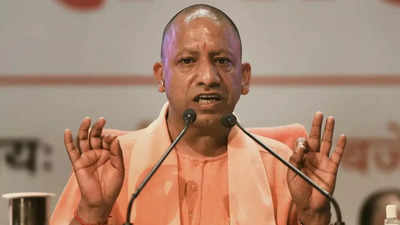
Adityanath’s comments are seen as part of a broader effort to highlight religious discrimination faced by Hindus in Bangladesh, which he claims has been overlooked by political opponents due to fears of alienating certain voter bases. The Chief Minister argued that the silence of opposition parties on this issue is indicative of a broader pattern of selective outrage, where human rights violations are only condemned when politically convenient.
In his speech, Adityanath stressed that the well-being of Hindus in Bangladesh is a matter of significant concern and should be a priority for Indian leaders, irrespective of political affiliations. He urged all political parties to unite in addressing the issues faced by minority communities in neighboring countries, suggesting that a collective stance would send a powerful message to the international community.
The Chief Minister's remarks come at a time when religious and ethnic minorities in Bangladesh have been reportedly facing increased persecution. Reports of violence, land grabs, and forced conversions have raised alarm among human rights organizations. Adityanath’s call for action aims to bring these issues to the forefront of political discourse in India, pushing for a more proactive approach in addressing cross-border minority concerns.
Critics of Adityanath’s stance argue that his focus on Bangladesh’s internal matters could strain diplomatic relations and distract from domestic issues. However, his supporters believe that raising awareness about the plight of Hindus in Bangladesh is necessary for ensuring their safety and preserving their cultural heritage. They argue that India's historical ties to the region and its role as a protector of Hindu interests worldwide justify such interventions.
The broader political context of Adityanath’s statements reflects the complex dynamics between religion and politics in India. The ruling party, of which Adityanath is a prominent member, has often been accused of using religious rhetoric to consolidate its voter base. However, the Chief Minister’s speech also highlights genuine concerns about the human rights situation in Bangladesh, which has seen waves of violence against minorities over the years.
As the debate over the treatment of Hindus in Bangladesh continues, the issue is likely to remain a point of contention between political parties in India. The opposition, while maintaining a cautious stance, has yet to respond directly to Adityanath's accusations. The silence, according to some analysts, could be strategic, aimed at avoiding further polarization in an already divided electorate.
Adityanath’s call for greater attention to the plight of Hindus in Bangladesh adds another layer to the ongoing discussions about minority rights and religious freedom in the region. It also underscores the complex interplay between domestic politics and international relations, where concerns about voter bases and diplomatic ties often influence the responses of political leaders to sensitive issues. As the situation in Bangladesh evolves, it remains to be seen whether Adityanath’s push for a united political front will gain traction or further deepen the divisions within India’s political landscape.
